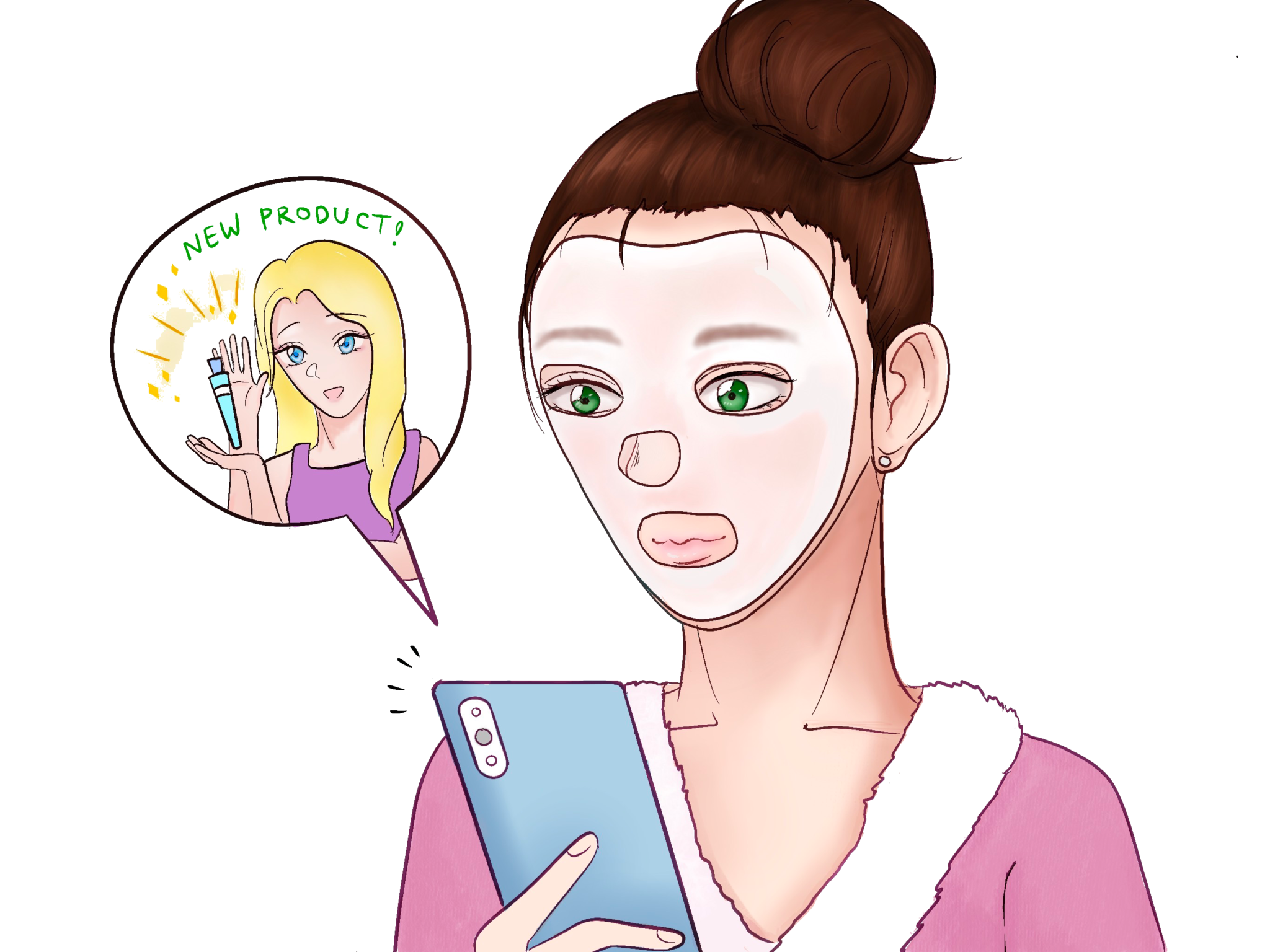

Instead of reaching for tea tree oil, sophomore Sarah Kaplan now grabs products from Bubble, a skin care company specifically for teens. Kaplan has always been interested in skin care. She began paying closer attention to the products that work best for her combination skin type because of recent breakouts.
“I had to switch it up … because you want your skin to feel and look good,” Kaplan said. “Appearance is everything nowadays.”
Many teens have also taken interest in skin care because of TikTok, a social media app home to influencers like Hyram Yarbro, known as Skin Care by Hyram, who help people discover products and ingredients that may work for their skin type and concerns.
“I was watching Hyram videos, and he showed this website that shows different products [that] target … one of the problems of my skin,” said sophomore Anna Sofia Abelgas. “It showed the list of products that could cause acne, or maybe just for my particular skin [type] weren’t great.”
However, social media can also be used as a marketing tool for companies that do not have their consumers’ best interests at heart. Many companies see teens as easily influenced consumers and prey on their insecurities to make a profit. The global skin care industry was worth $135 billion in 2018 according to CNN Business and continues to grow as teens spend more on skin care. In fact, in a survey conducted by Vogue Business in 2018, 38% of teen girls reported spending more on skin care than the year before.
“As teenagers and especially women, the people that you see in magazines really impact what you think of your skin,” Kaplan said. “Some companies just make products for the sake of it. … There are so many different products that you’re not supposed to have in skincare … that people … have.”
In some cases, companies offer to pay influencers to promote these products, and many agree to it for compensation, even if they do not actually use them regularly. Many beauty and skin care bloggers have been accused of endorsing harmful products and have been called “sell outs” for doing so. This is particularly alarming considering how many people look to social media to discover new products. In fact, according to Vogue Business, 76% of teen girls stated that they find new skin care brands from online influencers.
“There are a lot of scams, and it’s honestly kind of sad,” said sophomore Ava Yanez. “Teens just want to look good, but it’s so hard because there are so many bad things [on social media].”
Still, social media’s positives may outweigh the negatives so long as consumers are cautious of who they follow.
“I … think that [social media is] doing a lot of positive things because it’s giving teens an outlet to take control of their skin, rather than not know what to do and just be frustrated with it,” said junior Gabriella Oaks. “It’s a problem when influencers promote products just because they can make money off of it, but I honestly really like Skin Care by Hyram because … he promotes products that he believes are helpful. … I think it depends on which influencer you listen to.”
Affordability is also key for students as luxury products can cost up to hundreds of dollars which simply is not realistic for teens. Brands such as CeraVe and The Ordinary have grown in popularity with the help of recommendations from influencers and many of their products cost only $5 to $20.
After Oaks was recommended products by her skin care specialist, she tried them but ultimately decided that they were not for her.
“I realized that I [couldn’t] keep affording this brand, so I started looking at the ingredients that were in those products and looking for similarities … in other products that were cheaper,” Oaks said.
She now uses some products from The Ordinary, which offer most serums for under $10, a more accessible price for some. Senior Jessica Chen is also a fan of these affordable products.
“I used to have a job, but … I don’t have a job anymore,” Chen said. “So it’s definitely good to not spend too much on skin care. [It’s] is not my first priority right now. After I got into skin care, I thought that the more expensive things are better, but … I found out that [price] really doesn’t matter. … You don’t need some sort of luxury skin care product to take care of your skin.”
All in all, social media has helped teens discover the world of skin care and find affordable products, but they should still be wary of advertising and who they follow.




